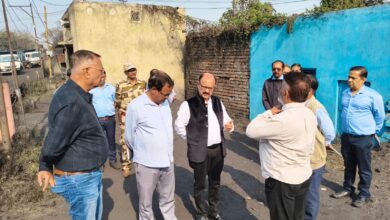Cradle to Grave: The Health Toll of Fossil Fuels
Fossil Fuels Are the Silent Architects of Suffering – From the First Extraction to the Final Emission

Fossil fuels are not just accelerating climate change—they are fueling a global health crisis that begins before birth and extends across the human lifespan. From extraction and transport to burning and waste, every stage of the fossil fuel lifecycle damages health, often in ways hidden from conventional data systems.
A groundbreaking new report, “Cradle to Grave: The Health Toll of Fossil Fuels and the Imperative for a Just Transition,” released today by the Global Climate and Health Alliance (GCHA), presents the first comprehensive global overview of fossil fuels’ health impacts across every stage of life.
Key Findings
- Health harms begin before birth: Prenatal exposure to coal, oil, and gas pollutants increases risks of low birth weight, miscarriage, preterm birth, and congenital abnormalities—many with lifelong consequences.
- Children are uniquely vulnerable: Due to faster breathing rates and developing organs, children face heightened risks of asthma, cancer, neurological disorders, and impaired lung function.
- Widespread impacts across life: Fossil fuel pollutants contribute to cardiovascular disease, respiratory illnesses, reproductive harm, dementia, and premature death.
- Older adults at risk: With declining organ function and chronic conditions, the elderly are especially susceptible to fossil fuel-related diseases.
- Every stage causes harm: Extraction releases heavy metals, benzene, and radioactive materials; refining emits carcinogens like benzene and VOCs; transport risks spills and leaks; combustion generates PM2.5 and nitrogen oxides; waste (e.g., coal ash, flaring) continues toxic exposure for decades.
Beyond Climate—A Public Health Emergency
Fossil fuels are the largest source of greenhouse gas emissions, driving extreme weather, spreading disease, and undermining global health security. Yet many health harms remain dangerously understudied, unfolding over decades and leaving irreversible damage.
These impacts are tangible: polluted air choking children’s lungs, rising heat waves endangering vulnerable populations, communities uprooted by ecological devastation. Hospitals worldwide are overwhelmed by illnesses that could have been prevented with a rapid transition away from fossil fuels.
The Economic and Moral Case
In 2022, fossil fuel subsidies soared to US$7 trillion, according to the IMF—US$1.3 trillion in explicit subsidies and US$5.7 trillion in unpriced societal costs (health, climate, congestion, environmental damages). Redirecting this money toward renewable energy and public health could:
- Prevent millions of premature deaths.
- Unlock US$4 trillion in public revenue.
- Deliver long-term economic, social, and health benefits.
- A Call for a Just Transition
The report emphasizes that a just transition requires more than clean energy adoption. It must include:
- Equitable access to renewables for marginalized communities.
- Investment in healthcare, environmental remediation, and community resilience.
- Worker transition policies and fair economic opportunities.
- Ending approval of new fossil fuel exploration and development—essential to meet the Paris Agreement’s 1.5°C target.
Conclusion
From the first extraction to the final emission, fossil fuels remain the silent architects of suffering. The cost of inaction is rising daily. A rapid, just, and equitable transition to renewable energy is not only an environmental imperative—it is a health imperative.
The writer of this article is Dr. Seema Javed, an environmentalist & a communications professional in the field of climate and energy




